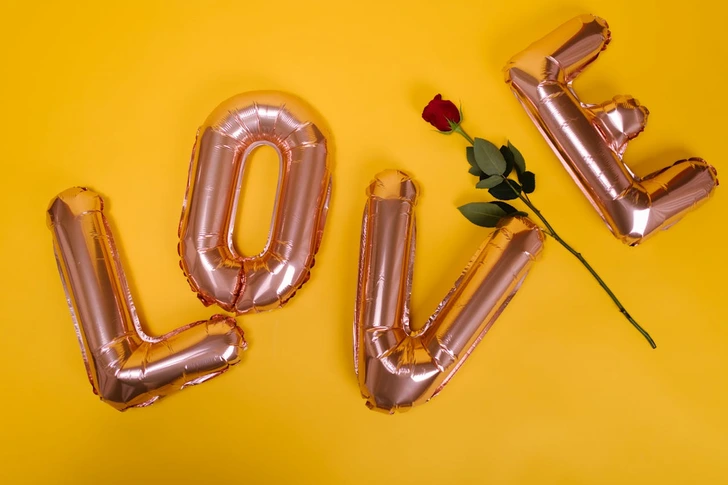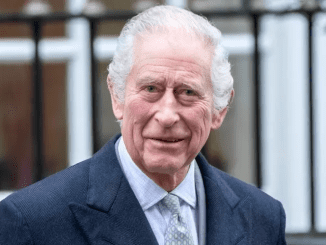When it comes to relationships, those three little words, “I love you,” are often seen as the ultimate expression of affection. But what if saying them too often is doing more harm than good? Relationship coach Jon Dillow has sparked a fascinating debate on TikTok, arguing that overusing the phrase can dilute its impact. Let’s dive into why mixing up your expressions of love could be the key to keeping your relationship fresh and exciting.

Saying “I love you” is undoubtedly important, but when it becomes routine—like a reflexive goodbye or an autopilot response—it can lose its emotional weight. According to Dillow, “The first time you say ‘I love you’ is monumental. But if it’s repeated constantly without thought, it can begin to feel less special.”
Think about it: anything that’s overused tends to lose its value. If you say “I love you” every time you end a phone call or walk out the door, does it still pack the same punch? The truth is, meaningful words can start to feel hollow if they’re overdone, much like a song you loved but played on repeat until it lost its charm.

The psychology behind this is rooted in a concept called habituation. Essentially, when you’re exposed to the same stimulus repeatedly, your emotional response diminishes. This is why a heartfelt “I love you” whispered during a quiet moment feels infinitely more powerful than one thrown out as an afterthought.
Moreover, overuse can sometimes mask a lack of effort in other areas of communication. Saying “I love you” is easy, but taking the time to express your feelings in different, more creative ways shows that you’re genuinely invested in your partner.
If you’re worried about your “I love yous” becoming stale, don’t panic. There are countless ways to express love without relying on those same three words. Here are a few ideas to inspire you:
- “You make my world brighter every day.”
- “I’m so grateful for everything you do.”
- “Being with you makes life so much better.”
- “I can’t wait to spend more time with you.”
- “You’re my favorite part of every day.”
These alternatives are not only refreshing but also tailored to specific moments, making them feel more genuine and heartfelt. It’s like swapping out a generic gift for something custom-made—your partner will notice the difference.

Beyond words, physical touch is another incredibly powerful way to express love. Research has consistently shown that affectionate touch—whether it’s a hug, a hand squeeze, or a cuddle—plays a crucial role in maintaining emotional intimacy.
In fact, a study conducted by the Kinsey Institute found that couples who engage in regular physical affection report higher levels of relationship satisfaction. Another study by the University of Virginia revealed that holding hands can reduce stress and create a sense of security. So, when words fail, let your actions do the talking.

If you’re looking to mix things up, consider incorporating these non-verbal ways of showing love into your relationship:
- Acts of Service: Surprise your partner by tackling a chore they dislike or preparing their favorite meal.
- Quality Time: Dedicate uninterrupted time to each other, free from distractions like phones or work.
- Thoughtful Gestures: Leave a sweet note on the bathroom mirror or send an unexpected text just to say you’re thinking of them.
These small but meaningful actions show your partner that you care in ways that words alone never could.

Does this mean you should stop saying “I love you” altogether? Of course not! The key is balance. Use the phrase thoughtfully and pair it with actions that reinforce your feelings. For example, telling your partner “I love you” while holding their hand or after doing something thoughtful for them creates a deeper emotional connection.
Remember, variety is the spice of life—and of love. By mixing verbal affirmations with physical affection and acts of kindness, you’ll keep your relationship vibrant and meaningful.

Timing and sincerity matter. Saying “I love you” during a meaningful moment, such as after a heartfelt conversation or during a shared experience, gives the phrase more weight. It’s about quality, not quantity. A well-timed “I love you” can convey more than a dozen offhand repetitions ever could.
Saying “I love you” will always be important, but it doesn’t have to be the only way to express affection. By exploring creative phrases, meaningful actions, and physical gestures, you can show your love in ways that feel fresh, authentic, and impactful. So, whether it’s through heartfelt words, a spontaneous hug, or a small act of kindness, remember this: love is about connection. Keep it thoughtful, keep it genuine, and most importantly, keep it alive.


